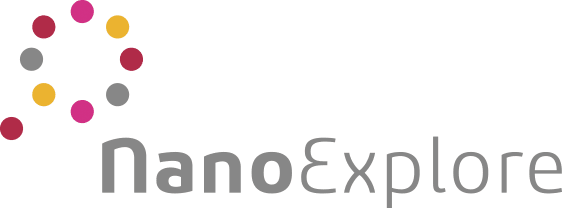The NanoExplore project has successfully ended! The Final Project Report is ready for your download. It covers the project activities from...
NanoExplore interview series: Aikaterini-Maria Zarogianni

At NanoTexnology 2022 in Greece, Thessaloniki, Cathrin Cailliau from Yordas interviewed all present NanoExplore partners on their views on the ending project. These interviews are now being published as a series to show the different perspectives of the project members, what has been done in the project and its results.
Who are you?
I’m Aikaterini-Maria Zarogianni, an environmental engineer. In NanoExplore, I’m representing N.E.C.C.A., the natural environment and climate change agency in Athens, Greece. My main role in the project was to contribute to the specifications of the NanoExplore web-based platform and the implementation of its operability test with the aim of supporting the acquisition, management and processing of data related to the engineered nanomaterial (ENM) concentration monitored by the wireless sensor network in industrial facilities and urban areas. Furthermore, I undertook the dissemination of the project and promoted the wireless sensor and the platform to Greek public authorities such as Hellenic ministries, departments of Hellenic universities and institutes and the Environmental Services Department of the Athens International Airport organising a stakeholder group. I also participated in networking activities for the successful dissemination of the project and finally, I contributed to the evaluation of project results and the implementation of effective reports and the deliverables in collaboration with the Project Coordinator and the other beneficiaries.
Why is the NanoExplore project relevant?
A recent development in science and technology, the invention of nanomaterials by nanotechnology help us advance our lives with products, applications or devices. Consequently, there is a massive increase in the worldwide production and use of nanomaterials. This gave us the opportunity to develop the NanoExploreR device and the concept of the NanoExplore project, in order to explore the health effects of nanomaterials and their impacts on the environment, and study, assess and determine all exposure effects.
What did you find most interesting about the project?
The project is an integrated approach, which makes it interesting as it includes two main pillars. On the one hand, the monitoring of the nanomaterial concentrations, by using a novel autonomous and portable device, even indoor and outdoor. On the second hand it is the monitoring of the health impact using, through biomonitoring studies and conducting a harmonised protocol.
What is the most important result of NanoExplore in your eyes?
There are many significant results of the NanoExplore project, such as the design and the development of the device, which can be controlled remotely, the development of the web-based platform, the selection of the biomarker for exposure, the determination of the reference value of the selected biomarkers, and finally the derivation of occupational exposure levels for workers. So, in my mind, the significant result is that one outcome completes the others, in a manner that all can be combined to form this integrated approach for health effects and the exposure to nanoparticles.
How can the results of NanoExplore be used to benefit society?
By disseminating the results, we can increase public awareness. We can provide the stakeholders from government, universities, and NGOs with reliable data on nanomaterials and on their health effects. Also, we can use it to find the exact maximum exposure for a worker, in order to take appropriate and adequate safety measures. Furthermore, we can reduce the nanomaterial pollution and also reduce the costs and the risks of environmental damage.
Check out the news section of our site for the other interviews ("view more"): NanoExplore news section
